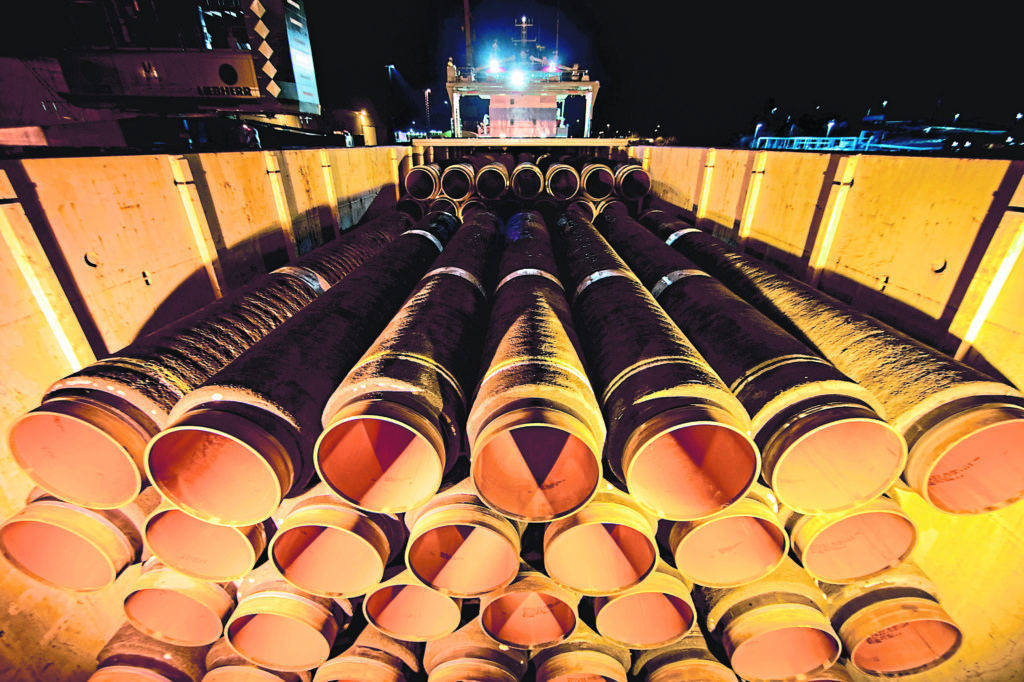
Norway is easily the biggest source of imported natural gas for the United Kingdom. In the first quarter of this year, when demand soared thanks to the now-forgotten Beast from the East, 60% of imports came by pipeline from Norway.
At the same time, North Sea production was continuing to fall, meeting 40% of overall UK demand. Reliance on imports protected us from the icy blast but also contributed to a huge increase in the trade gap.
By 2020, 90% of our gas is due to be imported.
About two-fifths of the Norwegian imports are landed at St Fergus while the remainder come into Easington via the Langeled pipeline. The gas via this route flows from the Ormen Lange field which has become a vital supplier to the UK market.
When I was energy minister in the early part of the last decade, a great deal of time was devoted to negotiating the terms of the agreement on which the pipeline would operate. The Ormen Lange field was discovered in 1997 and the deal was done by 2003, to create a very significant lifeline.
Looking back, it is noteworthy that at that time the expectation was that Ormen Lange would supply 20% of the UK’s gas needs “for at least 10 years” after it came online in 2007. So to that extent, we are already living on borrowed time.
Technology moves on, of course, and there are now many ways of extending the lifetime of a field. However, Ormen Lange production is down by a quarter since the peak in 2012 and the Norwegian Petroleum website states: “Offshore compression solutions are being evaluated to increase production and extend the lifetime of the field.”
I’m sure they will succeed and Ormen Lange gas will be with us well beyond the period originally envisaged. However, the fact that the question is even being asked does point to the important truths that most of the responses to our energy needs tend to have a shelf-life and decades pass quite quickly.
The question of where Europe’s gas comes from – and is going to come from in future – was raised in
characteristically blundering terms by US President Donald Trump on his recent rampage through Europe. Germany, he decreed, is “totally controlled by Russia because they will be getting 60-70% of their energy from Russia and a new pipeline”.
His numbers were exaggerated – gas makes up only 20% of the German energy mix – but another 40% comes from coal, with huge pressure to reduce, while 11% still comes from nuclear which Germany is committed to getting rid of. Inevitably therefore, the country will become increasingly dependent on gas – including Russian gas.
This intention is confirmed by the Nord Stream 2 project which is the pipeline Trump was referring to. If it goes ahead over the next decade, it will carry huge volumes of gas – double current capacity – under the Baltic Sea and into not only the German market but the wider European one.
While heavily backed by Angela Merkel, the project faces a battery of opposition on both environmental and strategic grounds. Trump’s outburst was probably motivated more by what he has been told about the impact on American LNG exports than by geopolitical concerns. But while he might not have been all right in his comments, he was not all wrong either.
If Nord Stream 2 goes ahead, Russia will undoubtedly have a far greater role to play in European energy markets than at present. In the longer-term, there is probably an inevitability about this because of Russia’s vast reserves. The immediate question is whether it makes good sense to hasten that day by allowing Nord Stream 2 to go ahead.
That dispute takes me back to the UK’s own internal debate over the past two decades about the extent to which we should become dependent on imported gas – which, it was widely recognised, would eventually mean Russian gas.
Much as in Germany, projected gas reliance was used by opponents of nuclear power to rationalise their argument but without regard for the potential downsides.
The rush in that direction had a collision with reality in 2007 when Russia used its energy hold over Ukraine for political purposes.
It was the briefest of warning signs but one that led directly to a reappraisal of how much sense it made to become over-reliant on gas imports as a long-term strategy. That question should still be on the table.
As long as gas is coming from benign sources like Norway, it may not seem to matter a lot.
We have also in the meantime had the rise of Qatar as the principal supplier of shipped LNG, not tomention American fracking.
So, the argument goes, there is no shortage of alternative sources of imported gas. But how long will that happy state of affairs prevail?
I have no hostility to the near-inevitability of Russian gas being an increasing part of Europe’s energy mix.
At present, it is claimed that only 1% of UK gas comes from Russia but that will certainly change. The Russians are also now in the LNG market out of their new Yamal terminal and supplied three consignments to the UK during the early months of this year.
The real argument here should be about the extent to which we become dependent on imports of energy, full stop. It does not make sense from either an economic or security perspective.
As ever, we need diverse sources of generation – and as much domestic power as possible, rather than alazy reliance on imports and interconnectors.
Recommended for you
